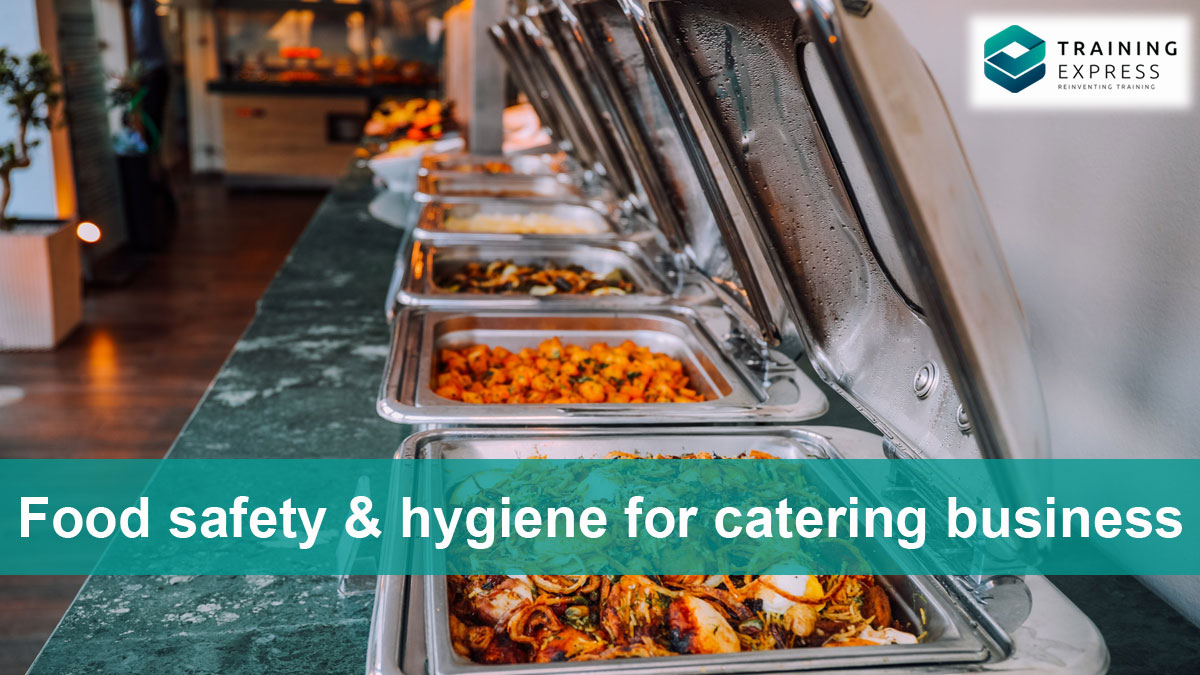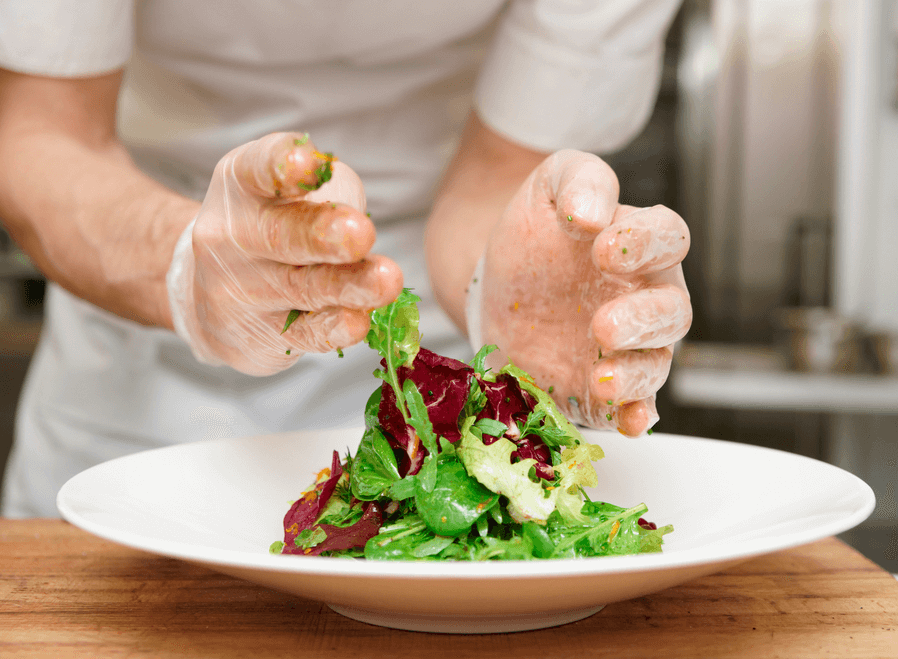
What is food safety and hygiene? How do you adhere to food safety legislation properly for your catering business? Is there a comprehensive way of learning about food hygiene and safety? If you have questions about food safety and hygiene, you’re not alone.
We’ve created this guide to answer your most pressing questions. This piece will help you embrace and implement food safety and hygiene measures. Eventually, you can transform your business and enhance your relationship with your customers.
It sounds like a big deal. Yes, it is quite extensive. But we are here to give you a hand.
What is food safety and hygiene?
To begin, let’s take a look at an important but often confusing matter: What do we understand by food safety and food hygiene? Is there any difference between them?
Let’s begin.
Food safety
Food Safety is the overarching process that focuses on keeping food safe and hygienic to eat. It covers everything about your catering business to help you reduce or remove the risk of food poisoning.
With food safety process, you gain the knowledge and understanding of all the risks for unsafe food. Then, you must conform to the good practices and essential countermeasures if you are handling food in any capacity.
Food hygiene
Food hygiene is one of the fundamental good practices you must follow to attain food safety.
It forms one of the three areas that the Food Standards Agency and all food safety legislation focus on. In other words, food hygiene is a preventative measure against the risks associated with food safety.
Food hygiene incorporates the safe storage, preparation and cooking of food and focuses on —
- Maintaining appropriate personal hygiene
- Preventing cross-contamination.
- Cleaning and sanitising procedures.
- Controlling allergens.
- Storing food safely and appropriately.
- Temperature management and control.
What's the difference between food hygiene and food safety?
It’s natural for anyone to assume that food hygiene and food safety are synonymous. Food safety is a complete system that ensures that food is safe through the management and elimination of the risks associated with food. In contrast, food hygiene is one of the three primary practices or pillars that contribute to the system of food safety.
Food safety and hygiene regulations (UK)
The Food Safety Act 1990 is the primary legislation for all food safety laws across the UK.
Because of the high risk associated with food safety and hygiene, the food safety and hygiene regulations in the UK are stringent and thoroughly enforced by The Food Standards Agency, or Food Standards Scotland 1.
Both agencies work with businesses, and local authorities to help everybody uphold The Food Safety Act 1990. They work with and support enterprises, but if necessary, they will, and have, the power to enforce the law.
There are three main areas of focus that the Food Standards agencies focus on:
- Hygienic food handling.
- The physical condition of the business.
- Food management systems.
These areas cover all the aspects of the Food Act Safety requirements.
Under the Food Safety Act, if you are a catering business, you will need to:
Implement Robust and Reliable Food Management Systems:
A food management system ensures that food safety and hygiene is implemented throughout the business. The system reduces the risk of cross-contamination and implements the correct labelling procedures and records. Such records relate to the supply and delivery, traceability of the food, staff training, and temperature control.
Follow safe hygiene practices:
This area of the food safety and hygiene legislation focuses on personal hygiene; how you handle the food safely, cleaning procedures, storage, cooking temperatures, and again, the prevention of cross-contamination.
Maintain Hygienic Premises:
You can have the best food handling practices out there. However, if your premises are not hygienic, you’ll never keep the food safe. This area of the law covers the upkeep and cleanliness of the building, waste management, adequate ventilation, pest control, and suitable lighting. Using these three pillars as a guide, you can ensure hygienic premises for your catering business.
Importance of food safety and hygiene for a catering business
Food safety and hygiene are vital for all catering businesses because unsafe food is a high risk to the health of your patrons.
A simple strategy for handwashing can help you to save somebody from severe health problems from food poisoning. Here are some other reasons why food safety and hygiene is essential —
1. For Legal Reasons
It’s a legal requirement for all catering businesses to follow the food safety legislation.
In the UK, you cannot serve food if you do not adhere to the legislation and work with the Food Standards agencies.
Make no mistake. If there is a severe case of food poisoning, requiring medical attention, the Food Standards agencies will follow up and trace the source.
2. Keep Your Customers Safe
There are many ways that bacteria can spread in food to dangerous levels. If you’ve ever experienced a mild degree of food poisoning at any time in your life, you’ll know that it is not pleasant, and the symptoms you experience are not so ‘mild’.
Can you imagine if these symptoms become worse, or if somebody ‘at risk’ is exposed to this level of suffering? We’ll share it with you – it can lead to severe illness and even death.
The difficulty is, it’s hard to know if the food is unsafe, mainly because in many cases, you can’t identify the hazard by sight or smell. The only way to keep food safe is to follow strict and safe protocols as laid out in food safety and hygiene regulations.
3. Maintain a Reputable Business
How to Obtain Food Safety and Hygiene Certification for a Catering Business?
Obtaining a food safety and hygiene certificate for your catering career or business is relatively simple. There are courses you can take online that will fit the legal requirements for handling food. A Level 2 Food Hygiene Certificate is the initial step you should take. If you work in catering, food safety and hygiene should be one of the cornerstones of your business or career. It’s essential that you know how to keep food safe. Practice food hygiene while you are preparing tasty food.
- Available Courses
- Career Bundles72
- Animal care5
- Law8
- Quality Licence Scheme Endorsed111
- Teaching13
- Teaching & Academics Primary27
- Accounting & Finance Primary29
- Training3
- Design9
- IT & Software43
- Healthcare124
- Marketing31
- Health and Safety400
- Construction48
- Electronics25
- Hospitality22
- Health and Social Care219
- Child Psychology37
- Management370
- Business Skills267
- First Aid70
- Employability264
- Safeguarding75
- Food Hygiene103
- Personal Development1272
 Food Hygiene
Food Hygiene Health & Safety
Health & Safety Safeguarding
Safeguarding First Aid
First Aid Business Skills
Business Skills Personal Development
Personal Development








